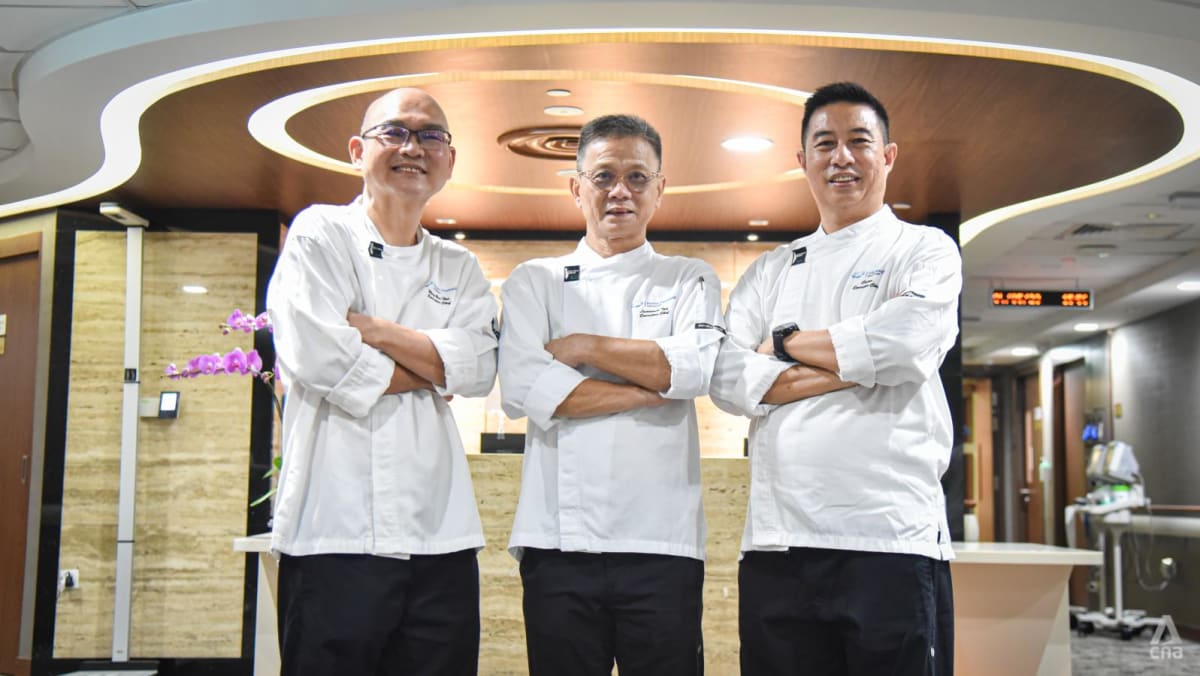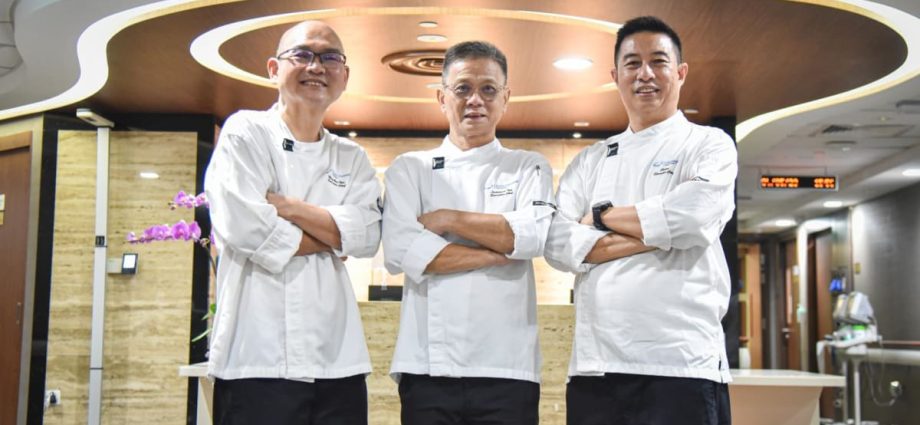
Even though Mr Wong enjoyed serving hotel guests, he “saw a challenge in a hospital to make my career more meaningful”, he said.
“It’s a different kind of fulfilment. Hotels have happy guests. Hospitals have patients … sometimes it’s a life-and-death (situation). It’s like giving back to society by using your skills.”
FINDING MEANING
These skills – some from international experience – also came in handy when serving various patients.
Due to the cultures Mr Wong was exposed to while working abroad, he “sees things from a different angle” and understands what to look out for when caring for patients from myriad cultures.
Mr Tan, too, has used his knowledge of various spices and herbs from his international experience to “reform all the recipes for hospital patients”.
For young aspiring chefs who crave such challenges and who are “very detailed people”, he usually advises them to become a pastry chef – or work in a hospital.
“Pastry is very detailed, very disciplined. You cannot anyhow put how many grams of flour, cannot cook sugar to any temperature. It doesn’t work that way; it has to be very precise.
”Likewise in a hospital, if the person cannot eat this amount of food and he’s a diabetic, you need to follow,” he said.
“People who love that kind of discipline, I encourage them to come to a hospital.”
And what of his peers who regarded his role as a retirement job? They “now know it’s more challenging”, said Mr Tan.
Perhaps, however, the best testament of how he has changed mindsets is that all the chefs currently under him hail from hotels.
“Now they feel the difference. They feel more passionate,” he said. “You do end up enjoying your cooking more.”

